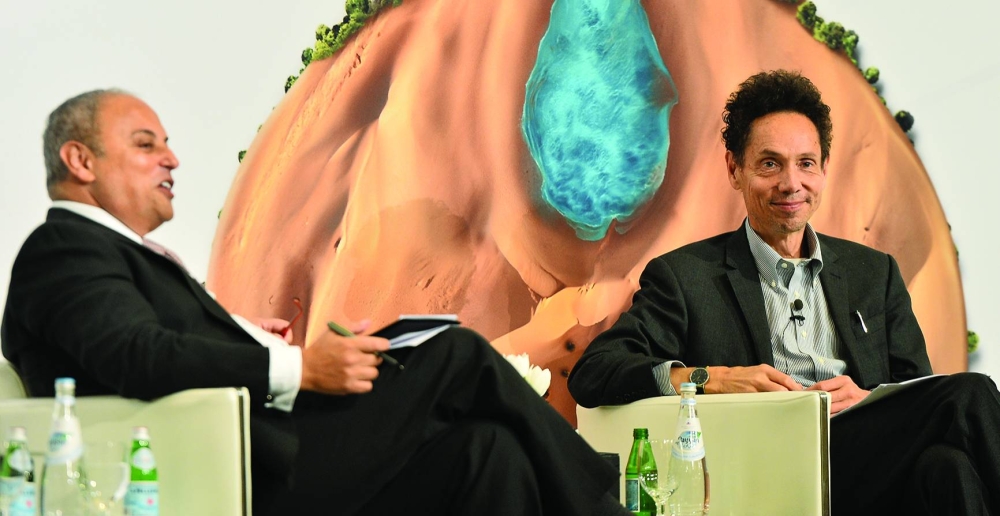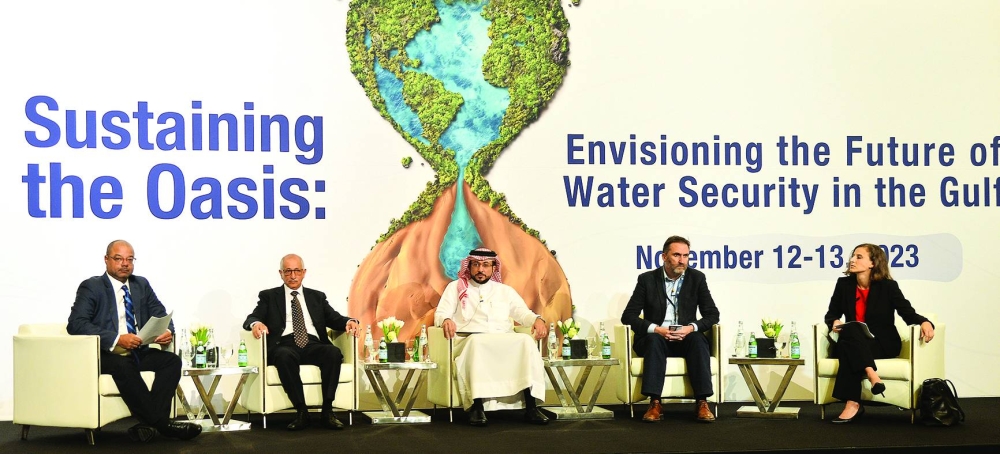Embracing innovation and technology, adaptation of advanced technologies in water treatment and desalination, smart water management systems, and data-driven decision-making tools were among the recommendations made at an event in Doha Sunday to overcome water security challenges in GCC region and beyond.
The opening session of Georgetown University in Qatar (GU-Q)’s “Sustaining the Oasis: Envisioning the Future of Water Security” conference, part of its Hiwaraat series, saw experts highlighting the urgency of addressing water security challenges and climate change.
In his opening keynote, Malcolm Gladwell, author of six New York Times bestsellers and one of TIME’s 100 most influential people and Foreign Policy’s Top Global Thinkers, argued that the kind of social risk-taking and the sense of urgency that led to breakthroughs for treating childhood leukaemia and the personal computer revolution can be a model for approaching climate change and water security.
“One of the mistakes we make is to treat every one of the problems we face as an ordinary problem and to assume that it is not necessary to be urgent or disagreeable,” he said, describing a doctor who pioneered chemotherapy treatments despite the fact that his peers thought he was taking too many risks.
“Scientists working on leukaemia in the 1960s thought it was an ordinary problem and that it wasn’t necessary to be in a hurry, or turn their backs on what their peers think,” he explained, going on to make the connection with environmental crises today.
Gladwell noted that tipping points are profoundly counter-intuitive.
“There’s a tipping point in Amazon deforestation, which we are perilously close to, where the ecosystem in the Amazon will change very quickly from a rainforest to a kind of savannah with devastating consequences for the planet,” he said. “It’s not a normal problem. It’s something that’s going to change overnight, and we can’t approach it with that same mindset, if we expect to have any kind of positive outcome.”
GU-Q dean Dr Safwan Masri, in conversation with Gladwell, noted: “Water security can never be taken for granted. The World Health Organisation (WHO) reports that one in three people globally does not have access to safe drinking water.”
Gladwell agreed: “The persistence of scepticism about some of these issues suggests that there’s something very wrong in the way we are framing them for the public and also our policymakers.”
“We might need to spend more time thinking about the context in which we educate people,” he added.
Georgetown’s Earth Commons dean Dr Peter Marra and Earth Commons Institute dean, conference co-organiser and GU-Q dean’s senior adviser Dr Raha Hakimdavar shared their thoughts on water security at the opening session.
The findings from the conference will be shared with the COP28 Presidency to inform discussions and negotiations around water.
A panel discussion on the water security challenges in the GCC countries highlighted that acknowledging and emphasising the urgent needs to address the water security challenges in the GCC as well as promoting sustainable water management, collaboration among the stakeholders, governments, academia, industries and researchers are some of the way forward.
The panellists also highlighted that embracing innovation and technology, adaptation of advanced technologies in water treatment and desalination, smart water management systems and data-driven decision-making tools, enhancing water conservation and efficiency measures, sustainable agricultural measures and raising awareness on the topic among the general public, can lead to a great extent of water security in the region.

A panel discussion in progress at the conference. PICTURES: Shaji Kayamkulam Gladwell with GU-Q dean Dr Masri.

A panel discussion in progress. PICTURES: Shaji Kayamkulam Gladwell with GU-Q dean Dr Masri.

